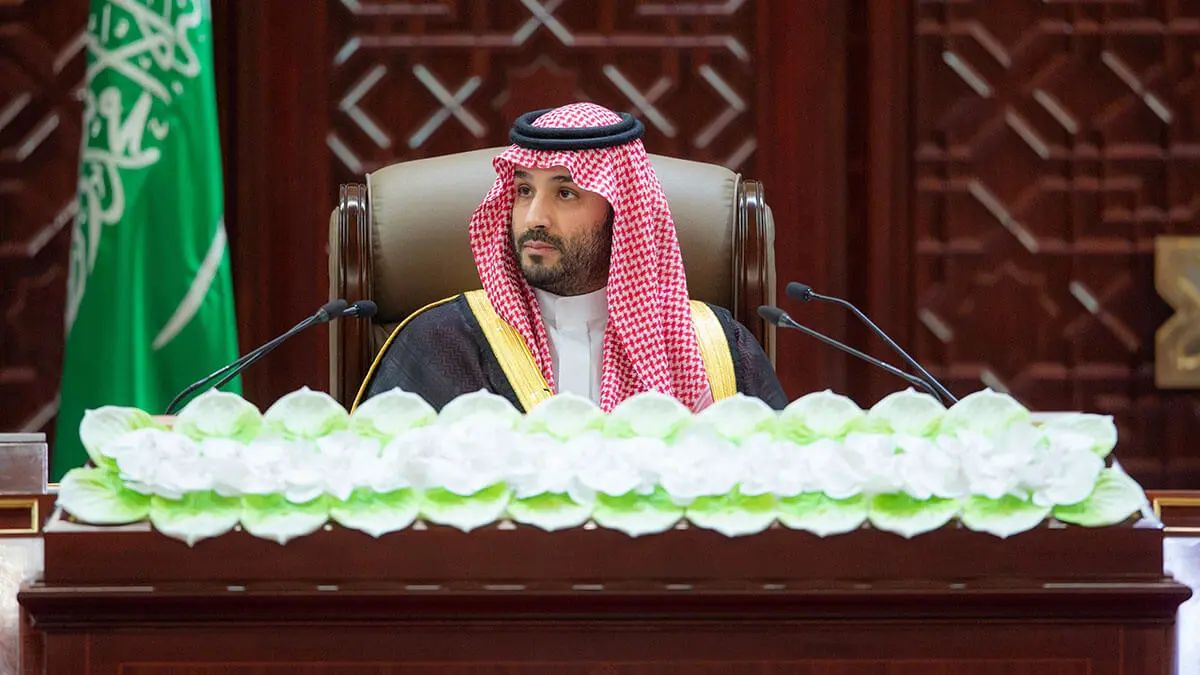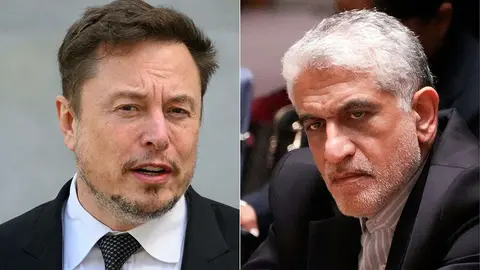Riyadh’s extended hand to Tehran

Saudi Arabia could have limited itself, at the recent extraordinary Arab-Islamic summit in Riyadh, to denouncing the grave violations committed by Israel against the Palestinians and the Lebanese.
The leaders of the Arab and Islamic world had in fact met for this specific purpose as part of their solidarity exercise. Most of them were well aware that such a meeting would not change much in Israel’s behaviour nor alter its conduct of war in the region. No change was expected as long as the Israeli war cabinet saw that the time had come to bring about changes on the ground.
Israel, and behind it the United States and the West, realised that October 7, 2023 was a watershed moment no different in its impact from the 1948 and 1967 wars, at least regionally. Just as it drew the map of its independent state, in 1948, based on the arrangements of the British Mandate, Israel thereafter drew the map of Greater Israel by occupying the West Bank (especially East Jerusalem), the Gaza Strip, the Golan Heights and Sinai in 1967. It is now in the process of drawing the map of Israeli security and what it sees as the contours of its self-defined security areas.
One can say that some features of this security map were sketched in 1981 when the Israelis attacked the Iraqi nuclear reactor and then invaded Lebanon in 1982.
But the Iranian factor is felt now more than ever, especially since Tehran has endeavoured to ensure it is part of any regional changes. Military action gave the Israelis their 1967 borders, while the Iranians have moved and reached their 2003-2011 borders after the fall of Baghdad and the outbreak of Arab civil wars. These were exploited by the Muslim Brotherhood and Iran in order to reap the advantages they enjoy today. Many had anticipated what eventually happened. Iranian plans sought to take advantage of the Arab civil wars in Lebanon, Gaza, Syria, Yemen and Iraq. What however was not anticipated by Iran, the Muslim Brotherhood nor the Arabs, was the lessons learned by Israel from the 2006 war in Lebanon. Accordingly, the Israelis prepared to wage their future war based on its destructive effect and not echo the tactics of intimidation which the Arab regimes and the Iranians had practised.
Less than a week after the “Al-Aqsa Flood,” the Israelis launched their devastating war in Gaza. Hamas turned the stratagem of the 2006 war between Hezbollah and Israel upside down. So did Hezbollah. Both prepared to fight on that basis. We all know now that the first thing the Israelis did was to tear up that battle plan and design something totally different based on a no-holds-barred psychological and military approach. Israel did not even think about their own citizens in its retaliation for the “Al-Aqsa Flood” assault. This is why hundreds of Israelis and foreigners are still being held captive by Hamas and the Islamic Jihad. Instead, Israel let Hezbollah “bully” them by threatening to destroy, bomb and kill. Then they dealt their second devastating blow as they launched successive assaults on Hezbollah, followed by an attack on Iran.
Now, even the most loyal of individuals or devotees of Hassan Nasrallah would not dare hang his posters in the Lebanese capital’s suburbs. Lebanon’s Shia have substituted one single demand to all their previous demands: simply a ceasefire. They say that while they are not awaiting military support from Iran (while avoiding the word “betrayal”), they expect the Iranians to take the initiative in compensating them for their losses and helping them rebuild what was destroyed by the war (while counting the civilians and Hezbollah fighters killed as martyrs in Paradise).
Some of my Lebanese friends do not hesitate to hint that if Iran refrains from compensating them or helping them rebuild what Israel has destroyed, it would mean that the Hezbollah-Iran procession, which has been in motion since 1982, would have in fact ended.
But who will compensate the Lebanese? It is presumed that it will be the Arab Gulf and some Western nations. But the Gulf states do not seem enthusiastic about such initiatives. Who will compensate the Palestinians? It is assumed that the Sunni countries in general and Western reconstruction funds will offer the compensation. But is there any sense in compensation and rebuilding efforts if another Sinwar can rise and launch a new war, similar to the October 7 assault, within five or ten years from now?
If the Israelis want to punish the Palestinians for the “Al-Aqsa Flood” misadventure, the Arabs in general and the Gulf States in particular want the Palestinians to reassess their position on war and peace and on peace agreements, and to avoid a repeat of what Hamas’ Sinwar or what Israel’s Netanyahu have wrought.
It is certainly difficult to imagine Iran getting itself involved in compensation for the Palestinians, because in doing so it would be admitting its guilt and that it had encouraged Sinwar’s Hamas to launch its attack.
This brings us back to the Arab-Islamic summit in Riyadh. There was no serious discussion at the summit about Lebanon, Gaza or the day after the war. The most salient aspect of the proceedings was the Saudi position blaming Israel for attacking Iran.
As long as the issues of Hamas, Hezbollah, the Houthis and the Popular Mobilisation Forces were in Iran’s hands, why not give the Iranians a chance to get out of their predicament; by handing them a ladder to climb down from the top of the tree up which they have stranded themselves?
There is no doubt that the Iranian leadership was surprised by what Saudi Crown Prince Mohammed bin Salman said during the summit. He was under no obligation to deviate from the usual narratives of Arab and Islamic summits. But Mohammed bin Salman did exactly that. He went far, perhaps even further than what Iranian decision-making circles close to the Saudis ever imagined. Here is Saudi Arabia condemning the Israeli attack on Iran and pushing the summit participants to adopt its stance. Iranian media reactions reflected Tehran’s shock at the Saudi position.
Iran’s top decision-makers must regret their new president, Masoud Pezeshkian’s absence from the summit. Is this a new Saudi Arabia that wants to encourage the Iranians to change their positions in the region after Tehran had tried loud rhetoric, hypersonic missiles and the striking of this and that target?
Allowing Iran to develop nuclear weapons seems unlikely while hundreds of missiles and drones have completely failed to have any effect on the Israelis. Iran could still cause harm if it wanted. It may even provoke a crisis with the Gulf states and then launch its missiles and drones against Arab Gulf nations. But if it did, it would only incur more retaliatory strikes from the Gulf states and their allies. Besides, it would not achieve much with its missile or drone strikes. Russia and Ukraine have been exchanging missiles and drones daily, without any real impact on the course of their war. The West, Israel and the Gulf states can bear the material drain (but perhaps not the psychological drain) from such strikes, but how much can Iran bear?
There is no more military front in Gaza. Hezbollah is finding it difficult to drag the Israelis into a confrontation on the ground so as to repeat the war scenarios prior to the Israeli withdrawal in 2000 or those of the 2006 war. The Syrian regime knows its limits very well and is not about to get involved in a new conflict. The odds of someone in Israel being hit by Yemeni or Iraqi drones launched once or twice a week, are akin to the chances of a building being struck by lightning during a thunder storm.
Iran still has a choice to make. The Revolutionary Guard officers know exactly what happened when they fired their missiles at Israel and when Israel struck Iranian military targets. They have only two options now. Either continue to implement the orders of Supreme Leader Ali Khamenei and be on the receiving end of Israeli (and perhaps Western) retaliation, or effectively neutralise the Khamenei-led institution and move to save Iran for its own sake. If they choose the latter path they can look at the Saudi ladder extended to them in order climb down from the top the tree from which they do not know how to descend.
Haitham El Zobaidi is the Executive Editor of Al Arab Publishing House.



